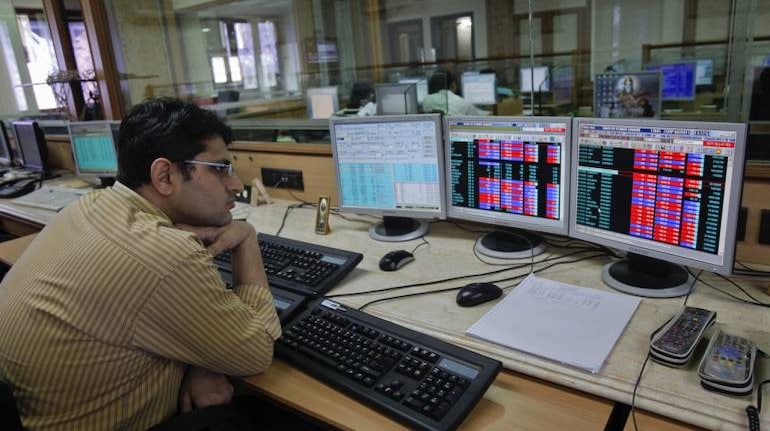



Allirajan M
With the Sensex marching past the 44,000 mark for the first time early this week, equity mutual fund (MF) investors must be pondering whether it makes sense to take some profits off now. After all, the Sensex is up a whopping 71.6 percent since it went to its 52-week low of 25,638 in March. COVID-19 had just been declared a global pandemic, markets the world over were in shock and many nations around the world, including India, had imposed strict lockdowns to curb the spread of the virus.
But things have changed ever since; the Sensex has been slowly but surely rising since the start of April. All the major equity MF categories have logged reasonable gains on a year-to-date basis. While many investors are busy trying to get into a running bus, searching for the next big investment idea, financial advisors suggest taking a cautious approach. It is time to take some money off equities as the markets have run up quite sharply, they say. Investors with no major long-term goals can pull their money out from equity MFs, say experts. But rising equity markets are not the only reason why you should take your money out of equities. In general, here are possible reasons for you to take profits from your equity funds.
Have I reached my goal?
Typically, you sell your equity funds if you have been saving up for an occasion and that occasion has arrived. But sometimes, equity markets rise so fast that you have almost reached your goal. And perhaps a fall in equity markets look imminent. In this case, it’s best to be cautious and take some money off.
Let’s assume you want to send your child off to an Indian Institute of Management to study business management when she grows up. Assume you have 18 years to plan for this goal. If the cost of a 2-year management diploma at IIM costs you around Rs 18 lakh today, it would cost you around Rs 61 lakh then, assuming a seven percent inflation. So, you need to start a systematic investment plan in an equity fund and put away close to Rs 9,000 every month. If, after years of investing, as you near your goal and if equity markets are like what they are today, it’s best to take some funds off the table and shift the proceeds to a bank fixed deposit or a low-risk liquid or ultra short-term fund.
“If you reach your goals or are very close to doing so, you can sell your investments,” says Kartik Jhaveri, founder, Transcend Consulting. “If your goals are 5-10 years away, then you should stay invested. People whose goals are just 1-2 years away should start taking profits in equity funds and gradually move them to fixed income products,” says Kalpesh Ashar, founder, Full Circle Financial Planners and Advisors. Retirement is another important goal that calls for a bit of active monitoring, especially when you are nearing your retirement years. You don’t want a few years of extreme volatility to erase your past gains.
Move out of riskier bets
The market rally has benefited mid and small-cap oriented funds, which have seen a sharp uptick in their returns in the past few months. But when markets move up so swiftly, it’s time to de-risk your portfolio a bit. Experts say that investors should watch out for markers such as high retail participation, heavy inflows and the jump in returns from categories that are typically volatile and riskier than broader markets.
“It is a good time to sell when inflows are at their peak and valuations are quite high,” says Shyam Sekhar, founder, ithought Financial Consulting LLP. “Investors should exit the riskiest part of their portfolio,” he says. The valuations in small and mid-caps would moderate in the months ahead, possibly as and when a correction in the market happens and investors can gradually enter the space after 2-3 years, say experts.
Rebalance your portfolio
Rather than focussing just on absolute index levels, experts recommend keeping an eye on asset allocation. So, if equities run up massively, you must take profits off and deploy the proceeds to up stakes in debt and a bit in gold. “Investors can move their money to gold as economic recovery is still some time away,” Sekhar says.
But does it make sense to invest in debt funds now? “Since we are in a low interest rate cycle, investors shouldn’t have high expectations on returns from debt funds,” Asher says. Again, this is not about returns; it’s about moving your assets from an overheated asset to protect your gains. Ashar says that investors should also not take undue risks in debt funds and stick to shorter duration schemes with good quality portfolios.
Lump-sum investment beneficiaries can sell
‘Adventurous’ investors who bought funds on a lump-sum basis when the markets plunged in March-April during the early days of the COVID-19 pandemic can redeem their investments now. “Those who had invested in the uncertain period of March-April 2020 and have reaped the benefits of this large upswing in equity could think of booking profits at these levels,” Asher says.
(The writer is a freelancer)
Discover the latest Business News, Sensex, and Nifty updates. Obtain Personal Finance insights, tax queries, and expert opinions on Moneycontrol or download the Moneycontrol App to stay updated!
Find the best of Al News in one place, specially curated for you every weekend.
Stay on top of the latest tech trends and biggest startup news.